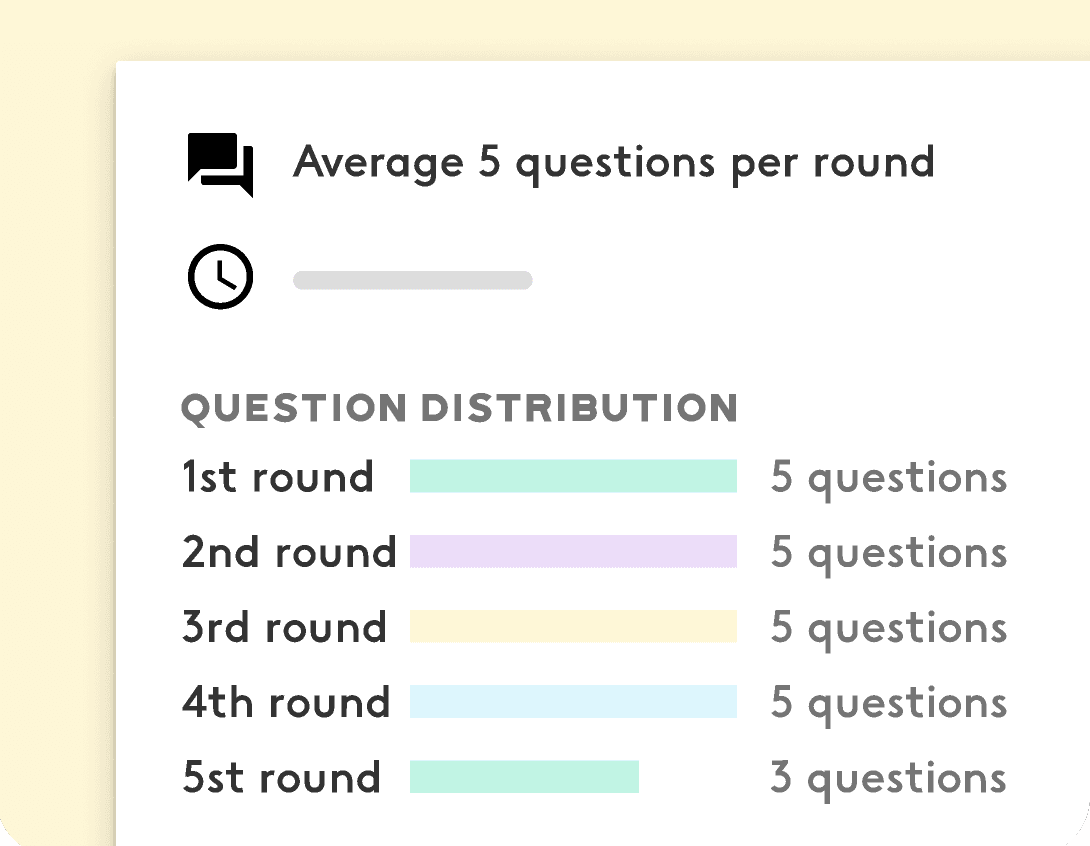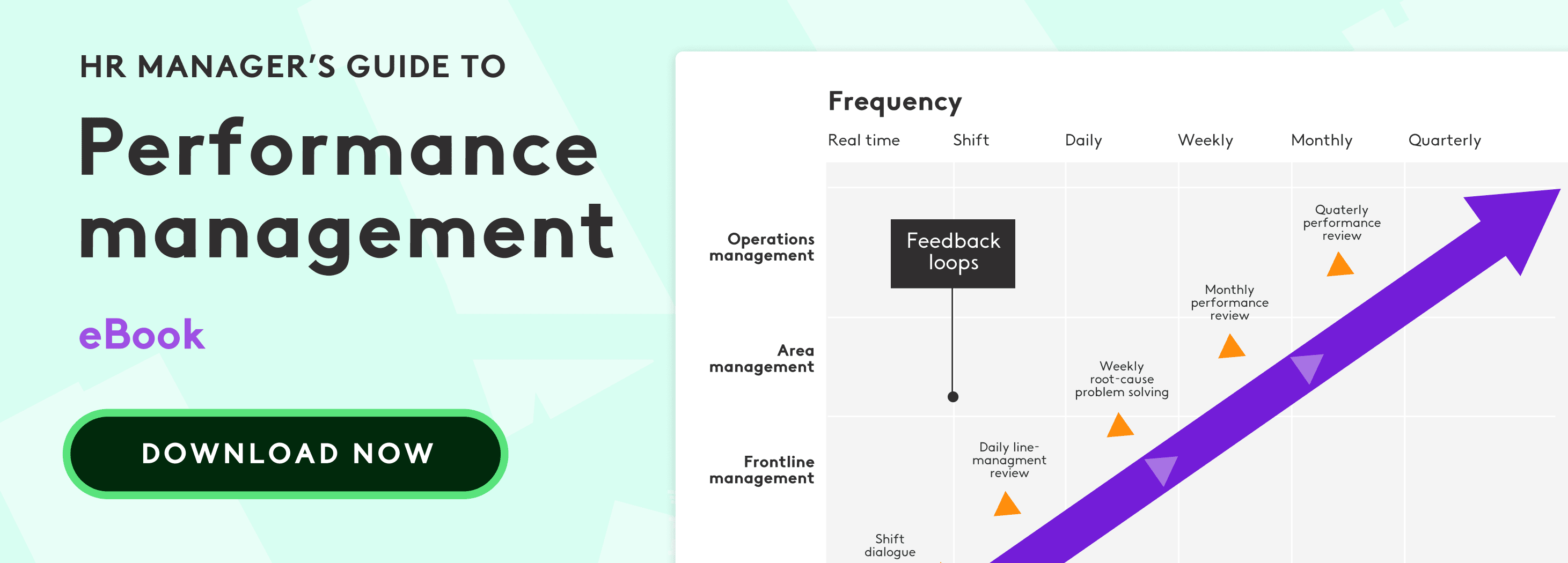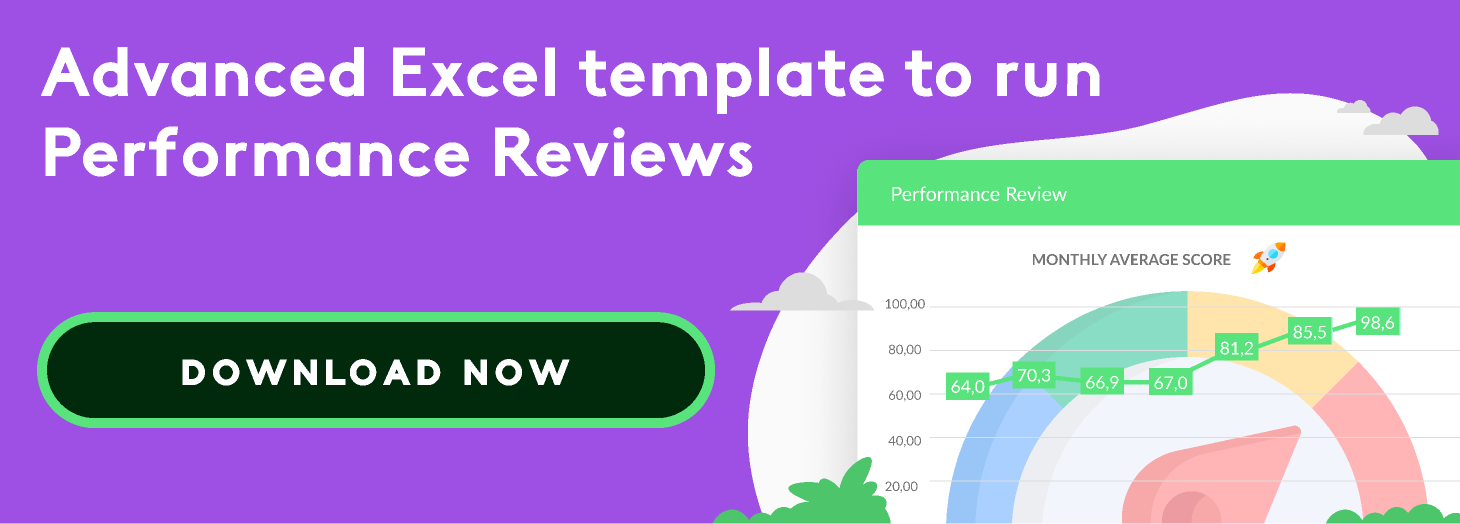What skills should you measure in a performance review?

There are a range of skills to be measured in performance appraisal, but it’s vital to focus on the most important ones for each person’s role within the organisation.
There are, however, 12 interesting aspects to consider for almost any professional. We’ll explain what they are and why they’re important.
1. Creativity and innovation
Creativity is the ability to spot new opportunities, come up with original ideas, easily adapt to changes and use the imagination to solve complex problems. This, in turn, leads to innovation. And as explained in this article in Forbes, creativity is the skill of the future. On a corporate level, creativity and innovation are also key in ensuring you stand out from the competition.
But can creativity be measured? An Australian company carried out 1300 tests on professionals from diverse sectors, over a one-year period. They discovered a formula to measure a person’s capacity for creative thinking at work. While the process is carefully explained in this article, there are six main six parameters to bear in mind:
- Openness to experience
- Creative self-efficacy
- Resilience
- Confidence in intuition
- Tolerance of ambiguity
- Cross application of experiences
2. Adaptability
Adaptability is the skill of coping and adjusting to unexpected situations and approaching them with a positive attitude. In terms of the workplace, the ability of employees to adapt to changes and face new challenges is crucial.
 Source: barclays.com
Source: barclays.com
A study by Barclays on the UK workforce (interviewing 10,000 people) showed that 60% of employers feel that adaptability is now a more important skill than it was 10 years ago. As Sherry Coutu, CEO of Founders4Schools says, “we are facing an unpredictable future, so being able to deal with high levels of ambiguity is important.”
3. Communication
Communication is an exchange of information and ideas within an organisation. Effective communication, however, can only work when messages are sent and received accurately.
According to Barclay’s study on communication, 54% of all those interviewed believe that communication has been the second most valued skill (after adaptability) in the last 10 years. This skill usually goes hand in hand with corporate culture and high performance.
It is one of the skills to be measured in a performance review. Laurie Wasko, Director of Consulting Services for Select, suggests three ways of doing this:
- Measure communication skills during an interview.
- Ask questions such as: “what would you do if...?”
- Perform a written test.
4. Responsibility
Accountability and accepting responsibility for your own results, for better or worse, is another important trait in an employee. It’s a sign of integrity and commitment to the company and their work.
Responsibility is fundamental to maintain high levels of efficiency and accuracy. In an article in the Harvard Business Review, Thomas Ricks explains the importance of demanding responsibility within a team. Otherwise, an atmosphere of inefficiency is created and the team will have to take on more work to drive the business forward.
5. Time and attendance
Attendance and punctuality are important factors in an employee performance review as they are basic requisites for most jobs and essential for effective performance.
By using a HR software with absence and leave management and time tracking features, evaluating these aspects in an employee will become so much easier. All the information you need will be available in the same tool, so you can discover whether they are punctual, how many days’ work they’ve missed and why.
6. Productivity and quality of work
Productivity measures the efficiency with which an employee performs their tasks. The higher the productivity, the more cost-effective the employee is for the company. This is why organisations that have highly-efficient employees in their team maintain high standards of quality. For this reason, it’s one of the skills that you should assess in a performance review.
Among the main performance indicators available to us, productivity can be measured in a number of ways. It is important to find the formula that best represents the professional’s work so that the information obtained is as faithful to reality as possible.
7. Achievements
Recognising an employee’s achievements is one of the biggest motivating factors. In fact, research by the Happiness Research Institute found that meetings objectives is the fourth most important aspect in gaining employee achievement and participation.
During the annual review, going over an employee’s most successful achievements and congratulating them on their work is essential. Even so, recognising the merits and celebrating them as a team on a day-to-day basis is also important to keep motivation and commitment levels up.
8. Cooperation
Assessing an employee’s ability to cooperate is important for guaranteeing that team projects and tasks will flow smoothly. When some people depend on the others to be able to complete a task, cooperation is fundamental to ensure a steady flow of work. This is synonymous with productivity.
A person’s level of cooperation can be determined by establishing several scales. A highly cooperative individual would be one who:
- Is happy working with other people.
- Collaborates and focuses on reaching a general consensus.
- Is considerate, polite and respectful with the rest of the team.
The employee who obtains the highest score would:
- Prefer working alone.
- Want to resolve issues by themselves instead of asking for help.
- Their teammates don’t ask them for help.
9. Training
Another skill to measure during a performance review is the employee’s level of interest and involvement in training and development plans introduced by the company. Are they attending classes? How much are they benefitting from them? These questions can be asked during the annual appraisal and are pertinent when it comes to reviewing a professional.
10. Improvements
When carrying out a performance appraisal it’s vital to conclude the meeting by mutually agreeing some areas for improvement and establishing specific actions to achieve the set objectives. This gives you the opportunity to revisit each one during the next review, to see the improvements the employee has made.
The main objective of a performance appraisal is to foster employee growth and development, so monitoring their evolution and the improvements is essential.
11. Interpersonal skills
Interpersonal skills, or soft skills, are those that concern how we communicate o relate to other people. By this we mean, for example, active listening skills, leadership, adaptability, etc.
Interpersonal skills have a greater influence in candidate selection. On one hand, because all jobs involve interaction with other people (colleagues, clients, etc.) and, on the other, because they are the traits that define someone’s personality. If an employee stands out in this area or needs to improve, then this should be mentioned during the appraisal.
12. Problem-solving
Problem-solving is the ability to detect issues, establish the cause, identify possible solutions and choose the right one. This is considered to be a soft skill.
One way of measuring this skill is to assess how an employee approaches different problems during the review period. We can also ask them, during the review itself, to talk about obstacles they have encountered and how they overcame them.
The role of technology in a performance review skills assessment
Technology can be a huge help in designing the structure and organisation of the entire appraisal process, in which so many skills are being measured. Performance review software enables you to design processes, adapt them to the specific needs of each company and monitor them throughout the year.
It’s also crucial to keep a record of the previous employee appraisals to be able to track their evolution over a period of time. Storing comments and the scores obtained, etc., can help enormously in ensuring an appropriate follow-up.
At the same time, technology lets you create alerts and notifications to keep the HR team and the workforce up to date about future reviews and the results obtained. Communication and managing expectations are essential for a smooth process that fulfils its objectives: employee development and the company’s growth.


